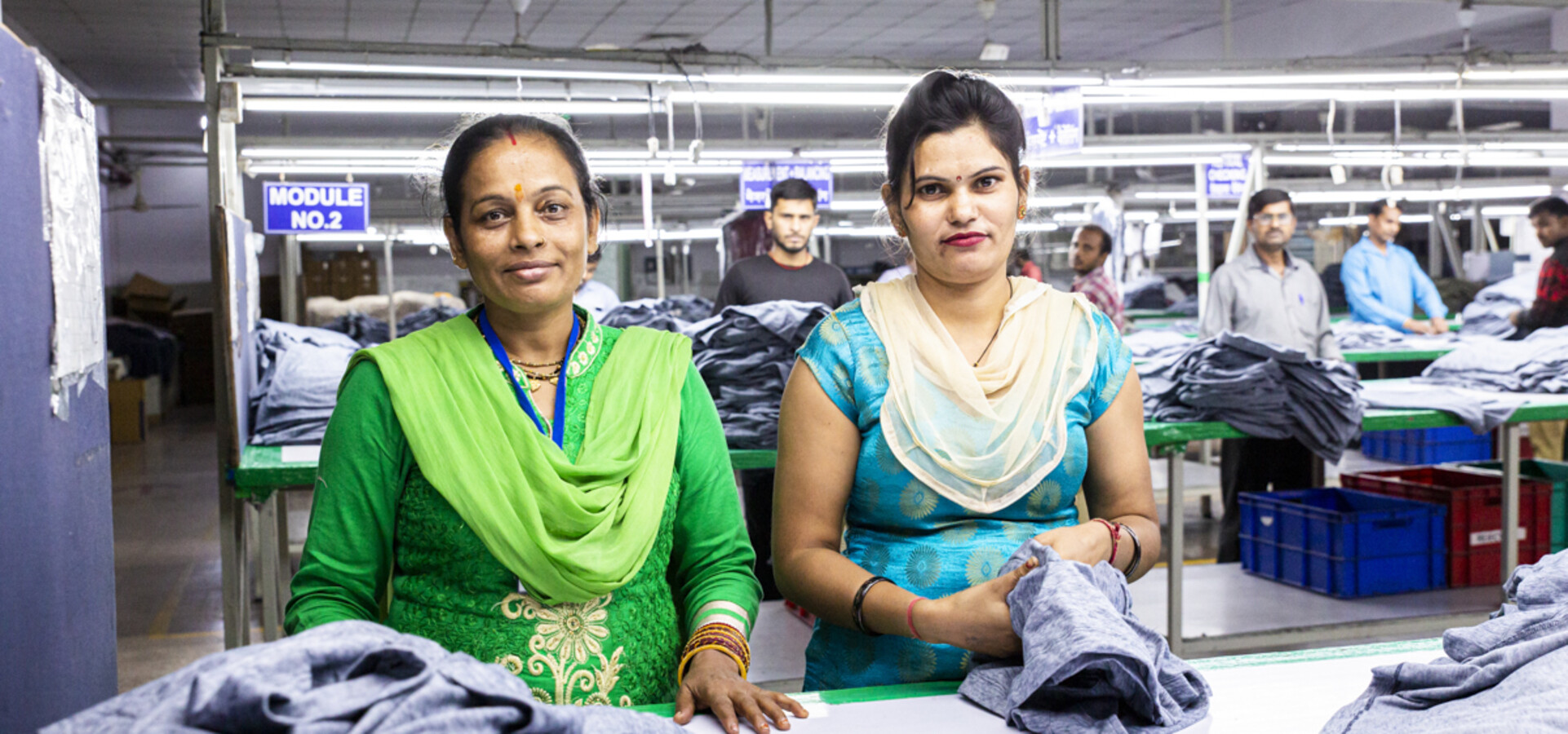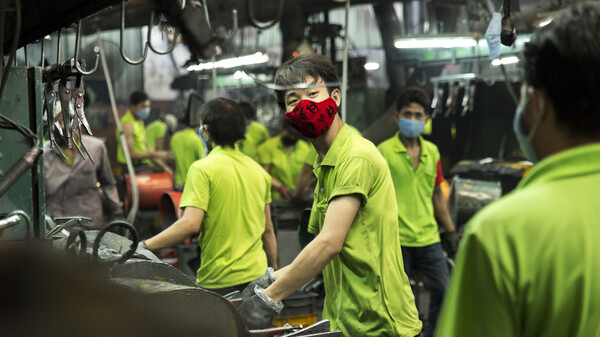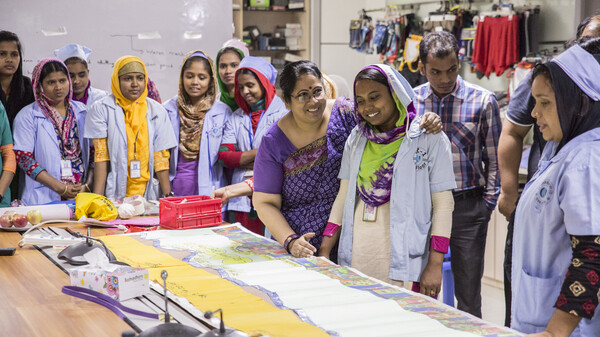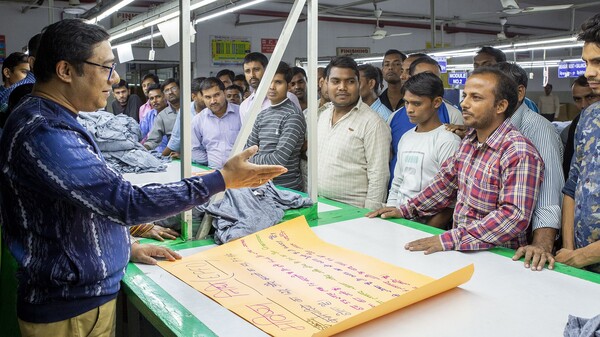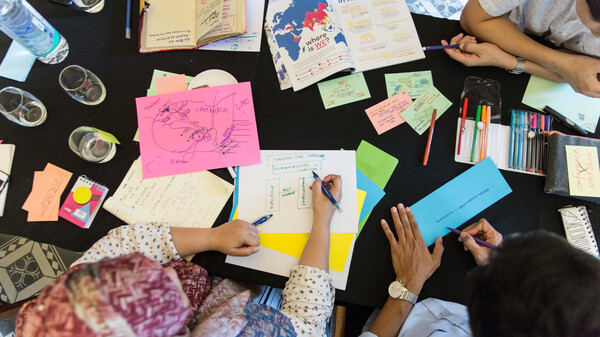Putting people centre stage

A responsibility to people in our supply chains
The success of our business should never come at the expense of the people in our supply chains. We are shouldering this responsibility and playing our part in providing decent work and promoting social development.
With this in mind, our work is centred on the UN Guiding Principles on Business and Human Rights, and therefore on the requirements of Germany's National Action Plan for Business and Human Rights (NAP), which has been active until 2020, as well as the upcoming Supply Chain Due Diligence Law. We are committed to upholding human rights, taking systematic action to prevent violations, and addressing any violations by means of targeted measures and constant improvements. This human rights due diligence has been an integral part of our business practices since 2006.
Our strategy
The risk of human rights violations in our supply chains cannot be eliminated overnight. That’s why we are gradually designing our products and processes to be more environmentally and socially responsible. Our focus is on those areas where our impact on people is greatest and where we can also have the biggest influence. Our strategy:
Building long-term partnerships with suppliers and producers
Empowering workers with the WE programme
Establishing social dialogue with the trade unions
Driving change across the industry
Establishing effective grievance mechanisms

Unsere Maßnahmen
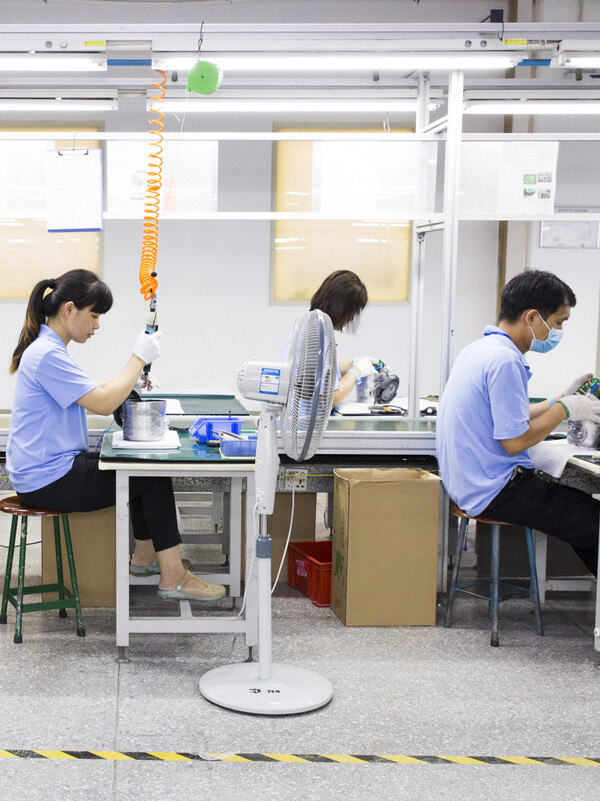
Supply chain transparency
Global supply chains are not straightforward but quite complex. The same is true of the supply chains in the Tchibo portfolio. Hundreds of suppliers and hundreds of thousands of small-scale farmers are involved before our products reach the shelves.
Transparency and traceability in supply chains is essential if we are to ensure our sustainability activities are tightly focused. What's more, consumers want to know where their products come from, and regulatory frameworks are evolving. This underlines the importance of transparency in supply chains.
It is time for binding and effective rules for everyone.
We believe that a delicate balance of legal obligations, individual responsibility and collaboration is needed if we are to make the progress that is so urgently needed in developing sustainable business practices. It is only by taking this kind of holistic approach that respect for human rights and compliance with environmental standards will improve significantly around the world. We firmly believe that voluntary commitments from the business community will not be enough on their own. We need a binding framework. We therefore welcome the German Supply Chain Due Diligence Law, which will come into force in 2023, and advocate for an effective EU directive.
Find out more:

